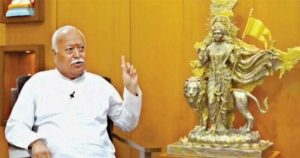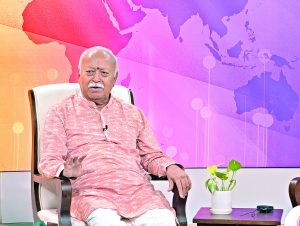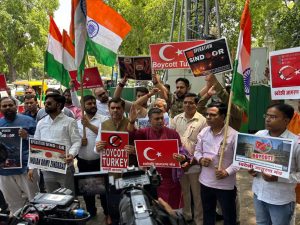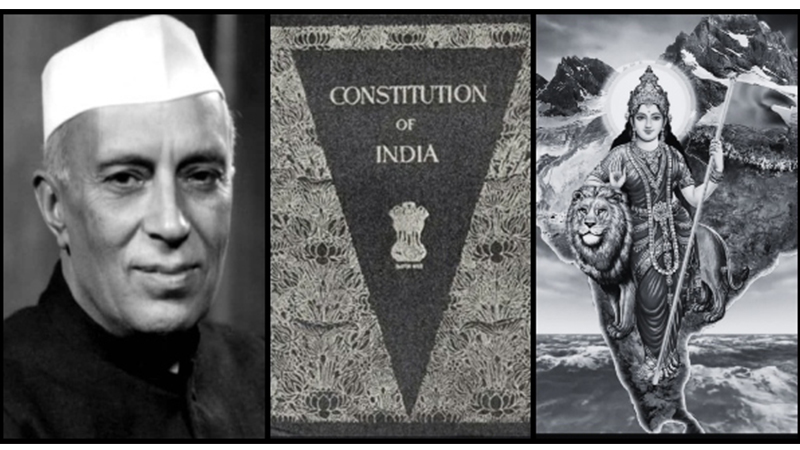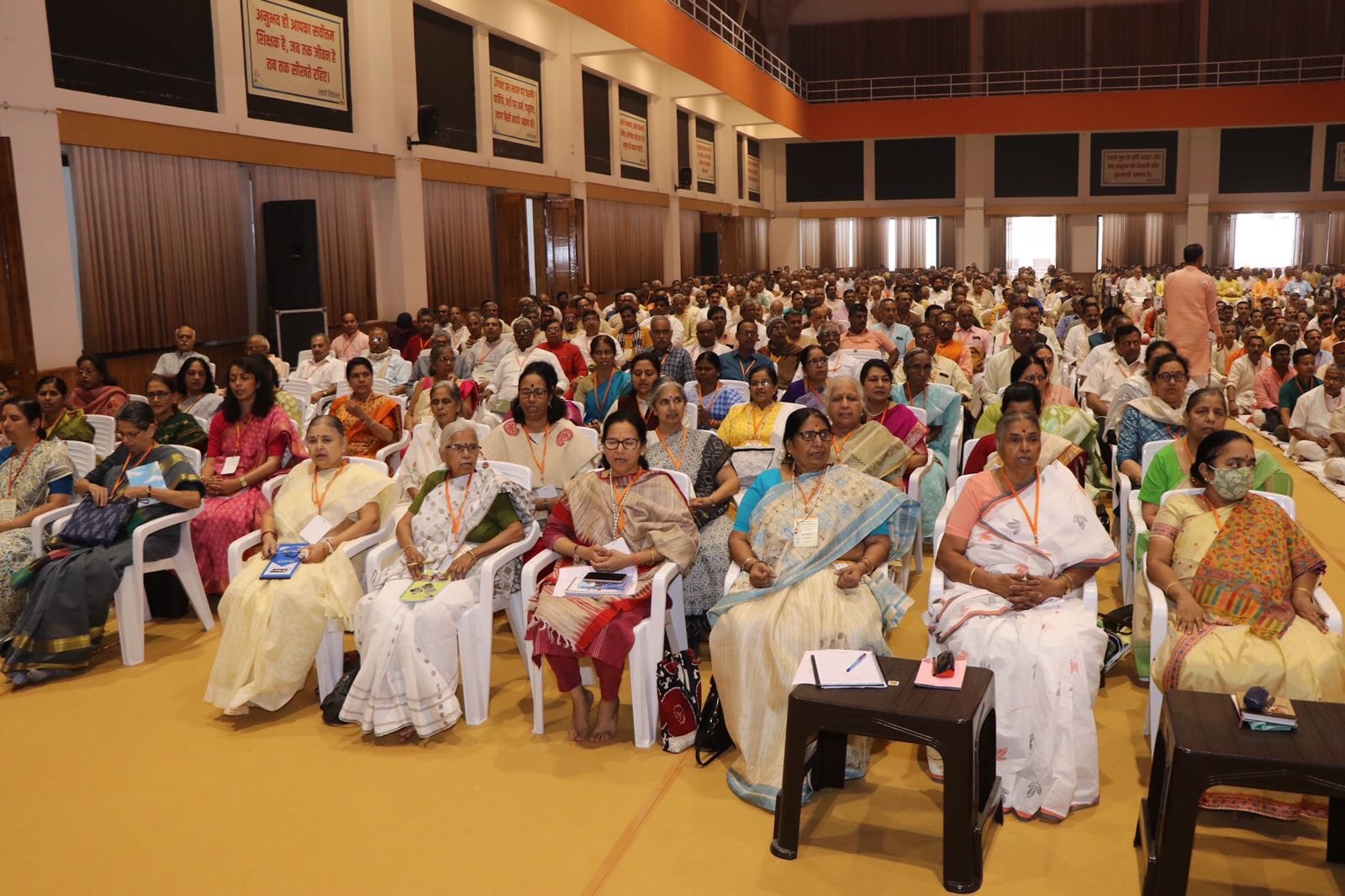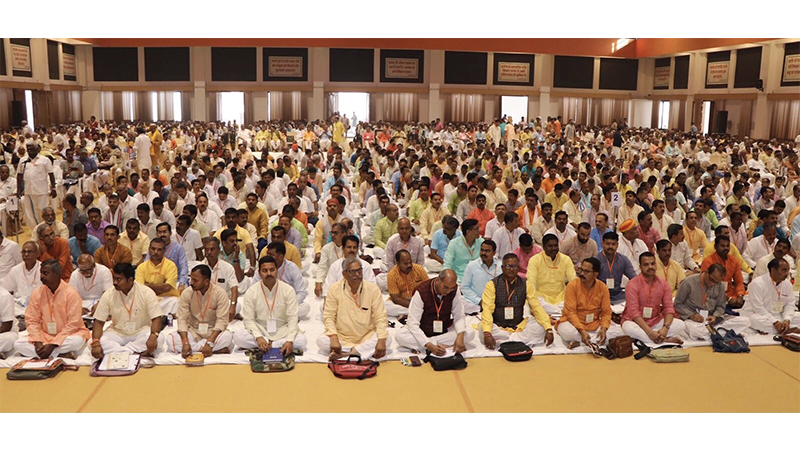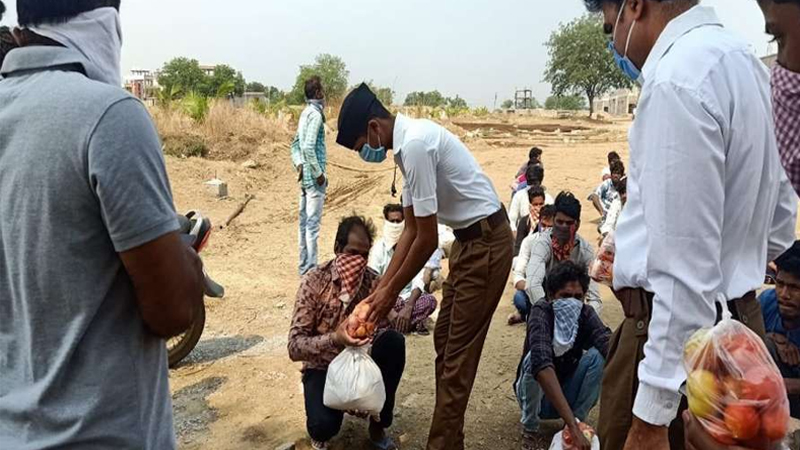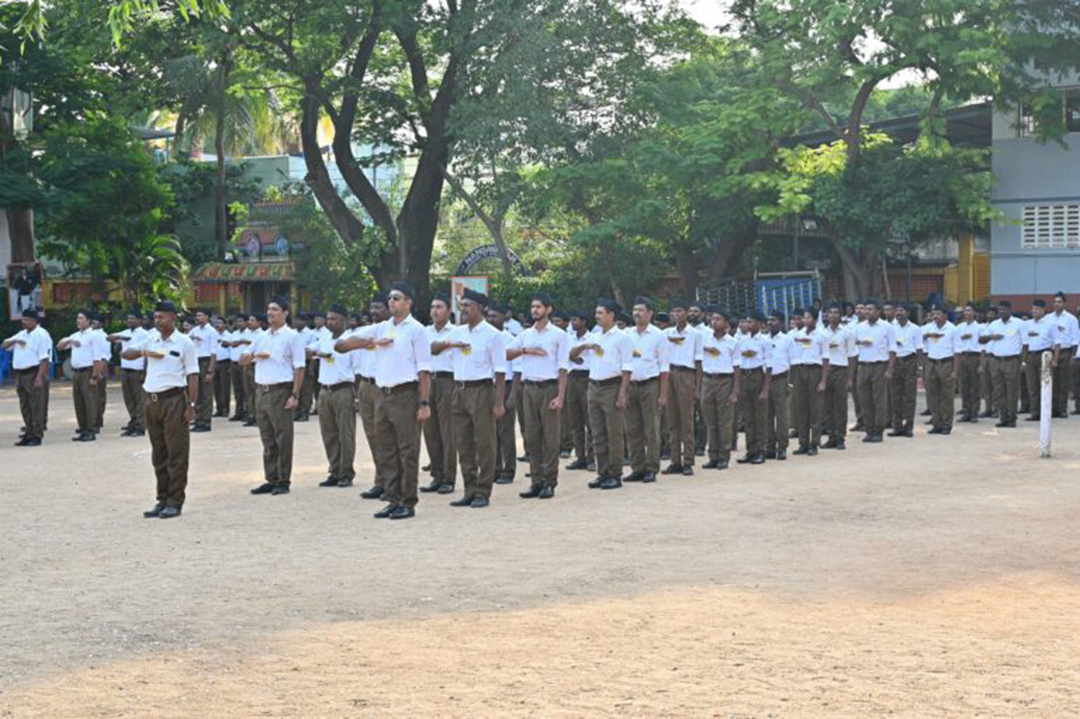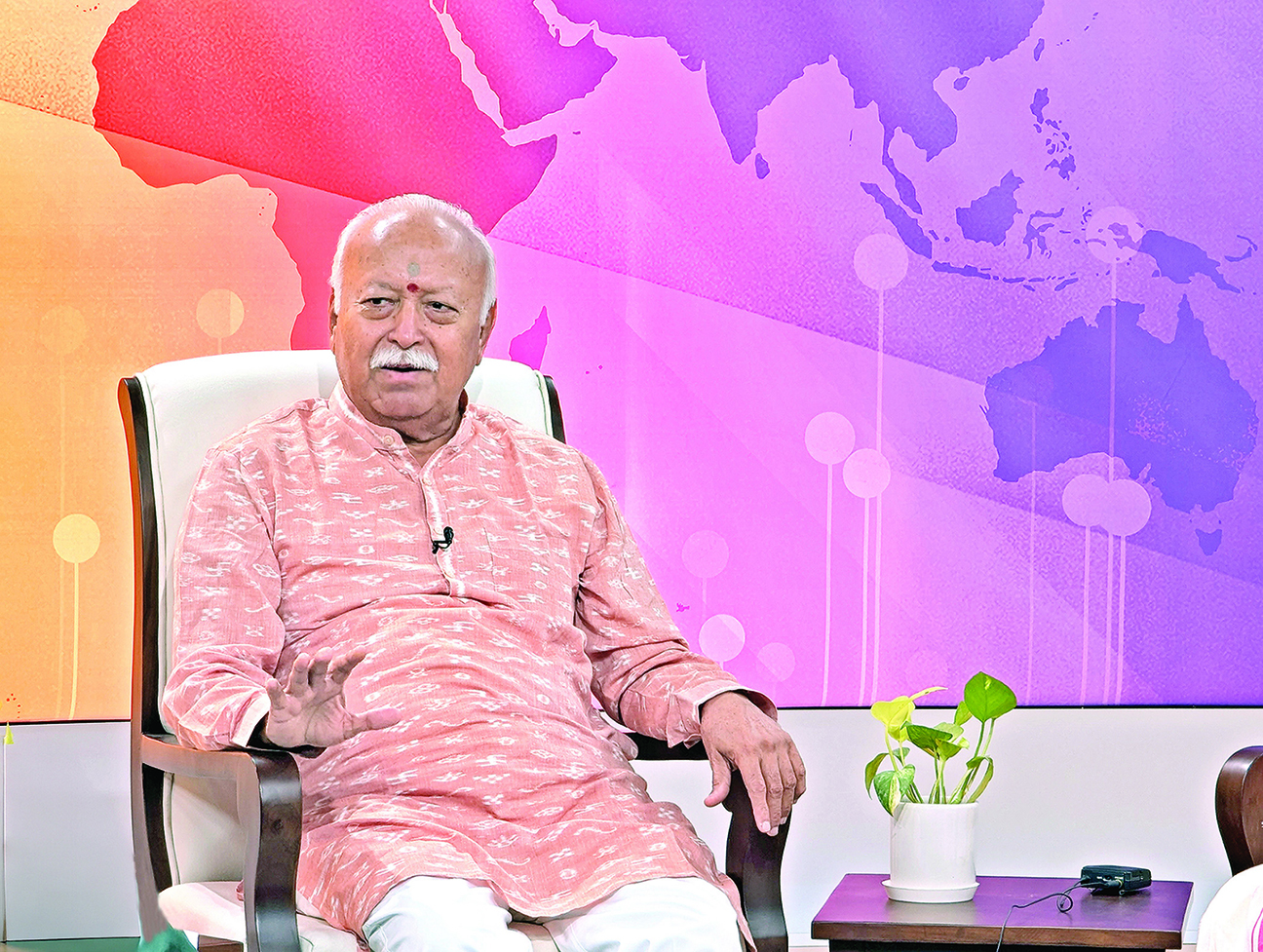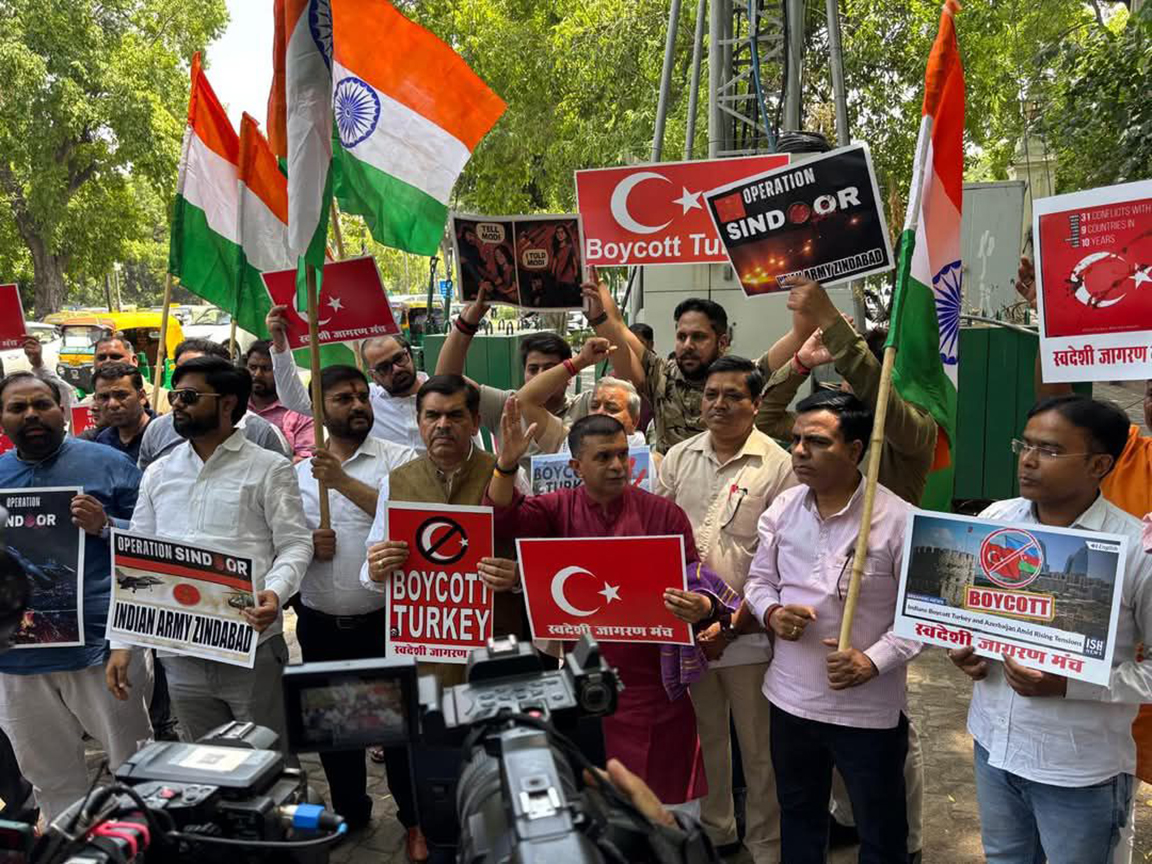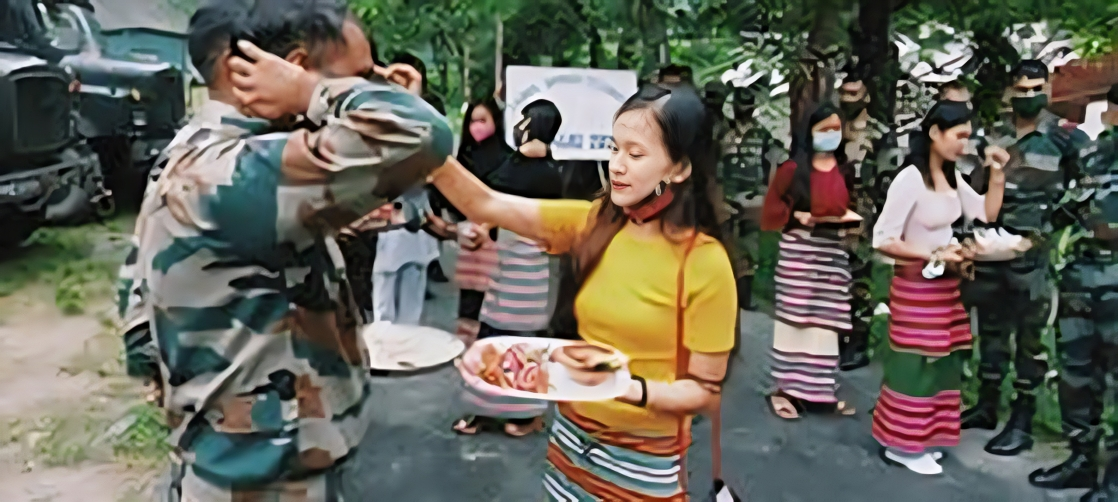RSS@100: Unravelling the road map for next 25 years and beyond
Updated: June 2, 2025 0:08
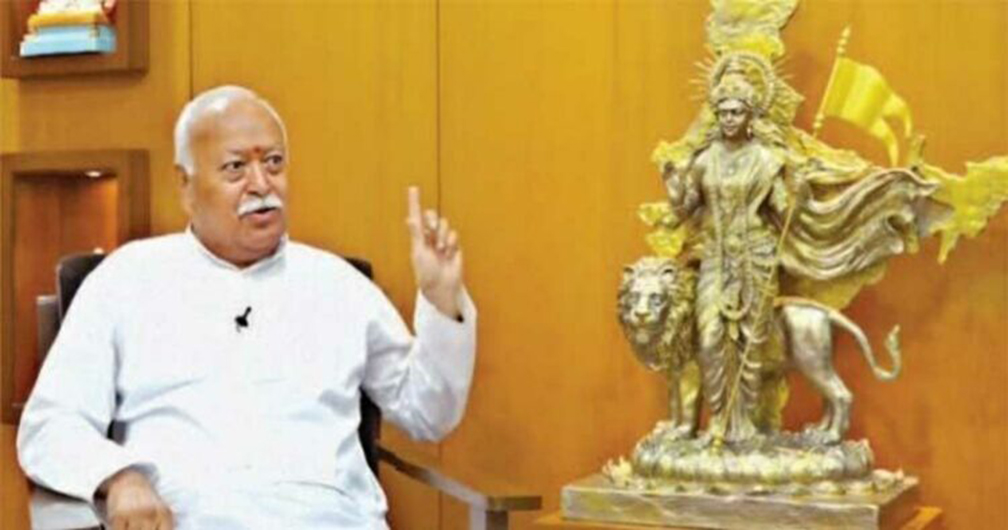
Mohan Bhagwat, the Sarsanghchalak of Rashtriya Swayamsevak Sangh (RSS), rarely gives interviews. Around a couple of months ago, he gave a detailed interview to a small group of RSS-inspired publications. The interview was recently published simultaneously by these publications.
The context of this interview needs to be understood before we analyse what he said and what it meant. The interview was conducted in the backdrop of a meeting of the RSS’s top decision-making body – Akhil Bharatiya Pratinidhi Sabha (ABPS) – that was held from 21st to 23rd March 2025. More than 1,500 delegates attended the ABPS this year, focusing significantly on preparations for the programmes to be undertaken during its centenary year. The RSS will turn 100 this year on Vijayadashami.
Sangh Remains Apolitical
One of the key messages given by Bhagwat is that the Sangh would continue to remain apolitical. There is no mention of politics or any political party throughout the interview. One of the main reasons for this is the great emphasis the RSS places on inclusivity. Bhagwat repeatedly mentions in the interview that the RSS aims to take every section of society along in order to achieve its objective of organising society in such a way that it transforms itself. Nowhere does the Sarsanghchalak respond to any of the political attacks made by certain political parties on the Sangh. Instead, he states that creating Samajik Samarasta (social harmony) is the foremost task of its volunteers.
“There should be affinity in society. There is a diversity of states, geographical conditions, and problems in our vast society. If we are to find a way forward in this situation, there must be provisions based on informed consensus; only then will everyone accept it, without diluting the sense of affinity,” says Bhagwat, outlining the Sangh’s apolitical approach, which emphasises the importance of ‘practising’ more than ‘preaching’.
Explaining this apolitical vision of the Sangh, Bhagwat says, “Samajik Samarasta must be practised, not just spoken of or advertised. We consider all as one; I must have friends from all castes and classes, and so must my family. Temples, cremation grounds, and water bodies must be inclusive wherever the Sangh has influence. This is already underway, and we must expand it.”
Undiluted Ideology
While the RSS has expanded rapidly and, on many issues, its stance has evolved over the last 100 years, its core ideological tenet remains undiluted. Bhagwat spells this out in the interview, quoting the third RSS Sarsanghchalak, Balasaheb Deoras: “Hindustan is a Hindu Rashtra.” Apart from this, everything else in the Sangh is transient. The entire Hindu society is accountable as the custodian of this nation. The nature and sanskriti (culture) of this country is Hindu. Therefore, this is a Hindu Rashtra.
He further elaborated on this in the contemporary context: “Everything must be done while maintaining this core. Hence, the Sangh Swayamsevak, while taking the oath, explicitly states: ‘for the all-round development of the Hindu Rashtra while protecting the sacred Hindu Dharma, Hindu Sanskriti, and Hindu society’.”
Next 25 Years and Beyond
Those who have been following the RSS would know that one of the key reasons behind its rise and massive organisational expansion is its long-term planning. It is said that the RSS does not typically plan for just one, five, or ten years—but rather for the next 25 years. This reflects the consistency, perseverance, resilience, and adaptability of the organisation, which is known for taking all its plans to their logical conclusion.
Spelling out the RSS’s vision for the next 25 years, in the context of the organisation soon completing its 100 years, Bhagwat said the objective and focus would be “to unite the entire Hindu society and take Bharat to the pinnacle of glory — and eventually, to extend this transformation to the whole world.”
Interestingly, this vision has also remained unchanged over the last 100 years. Bhagwat’s comments are self-explanatory: “Dr Hedgewar (founder of the RSS and its first Sarsanghchalak) envisioned this in 1920 itself—he urged the Congress to declare that total independence (Purna Swarajya) must be our goal, and that an independent Bharat must liberate other nations from capitalist bondage.”
In another interesting comment that reveals the RSS’s global vision, Bhagwat told the interviewers, “A senior karyakarta in 1992 had said, people across the globe will form their own ‘Rashtriya Swayamsevak Sangh’. This process of global transformation will start post-2047, and it won’t take 100 years; 20–30 years would suffice.”
He also emphasised that the world is looking towards Hindus and Bharat for a new revolution. “The world is waiting for a new path, and Bharat—which means Hindu society—has to provide it as a divine duty. Agricultural, industrial and scientific revolutions are over. Now the world needs a Dharmik revolution—I am not talking about religion, but rather that human life has to be reorganised based on Truth, Purity, Compassion, and Austerity,” says the Sarsanghchalak.

